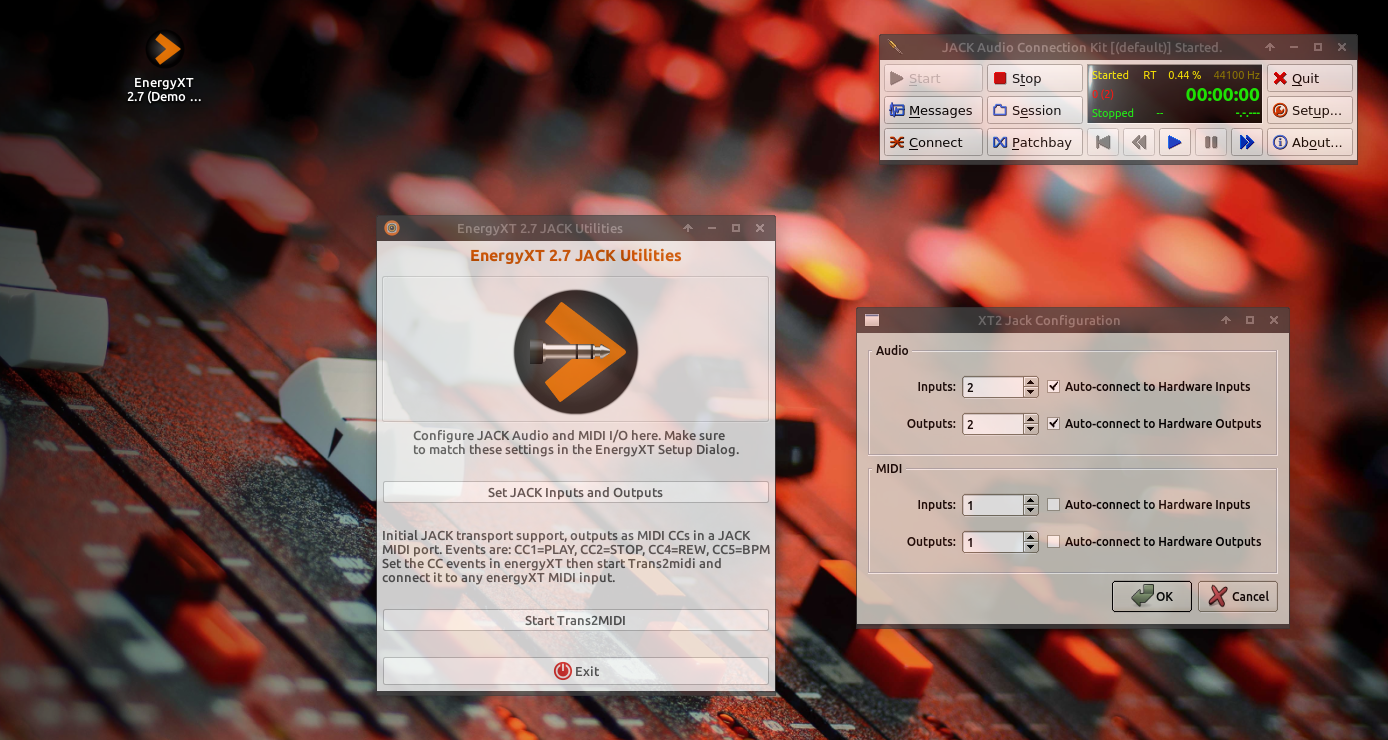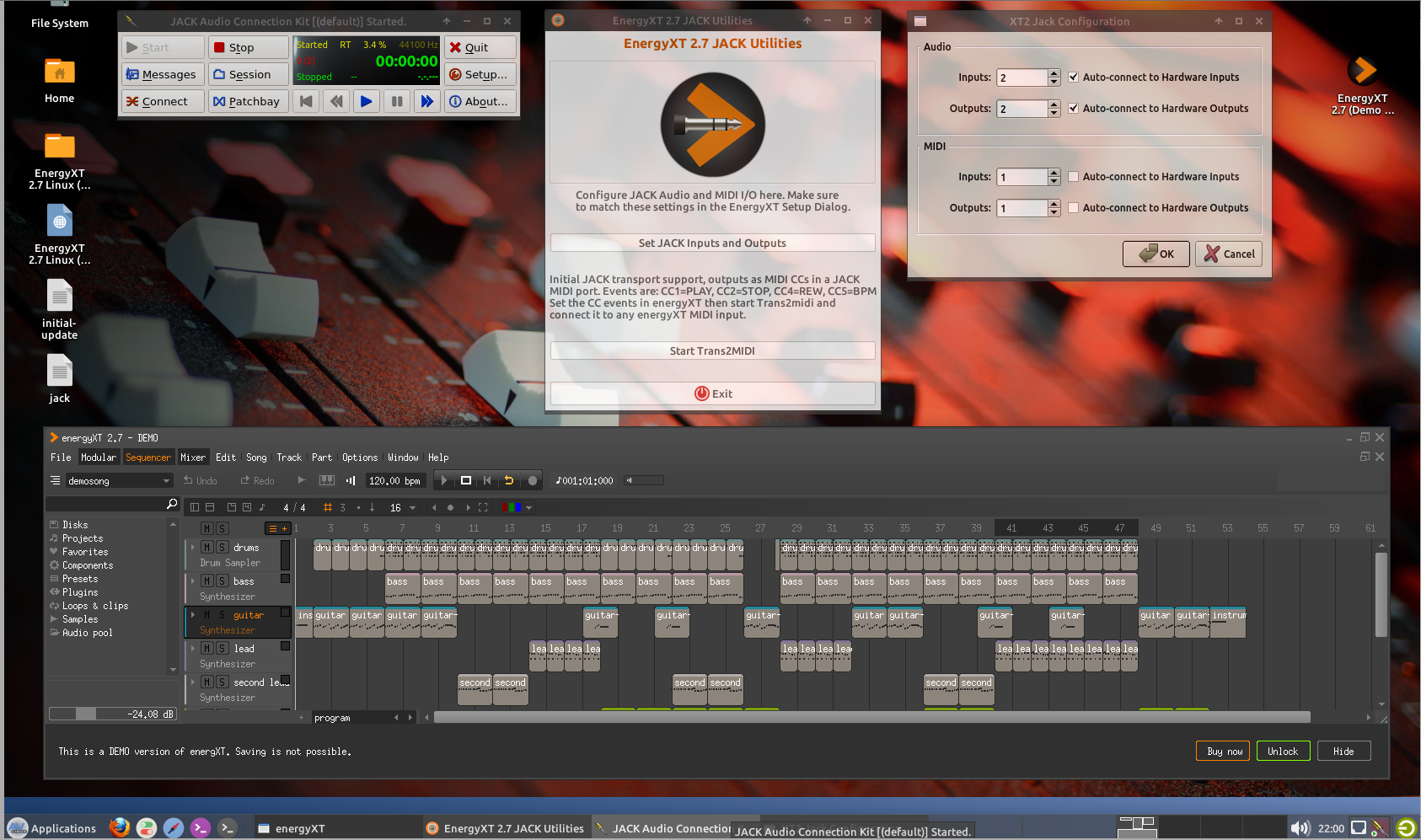Some recent discussions got my butt in gear and my curiousity piqued about getting good ole EnergyXT 2.7 Linux (32bit as we're painfully aware) running on a 64bit Linux system and by gum I did it!

Then some extra goodness from LinVST meant I can run both 32bit LinuxVST native plugins and 32bit WinVST Plugins. As proof of concept the picture above has Aspect, Helm and BlackEQ 2 as Linux VST's running alongside SFZ, Couture and Fabfilter Pro EQ as 32bit WinVST's converted with LinVST..
Probably a waste of time for most people but I'm just happy to know I can get this up and running on a 64bit distro.. This was all done on AVLinux 2019 but I made deb packages of my work if anyone wants to be a lab rat on another Debian/Ubuntu-based distro I can share them, just reply here..
While the Windows version of EnergyXT 3.0 works in Wine on a 64bit Linux system, I have some Audio artifacts and clicks and pops and dropouts with WineASIO and the Linux version seems to be more stable at lower latency settings.














